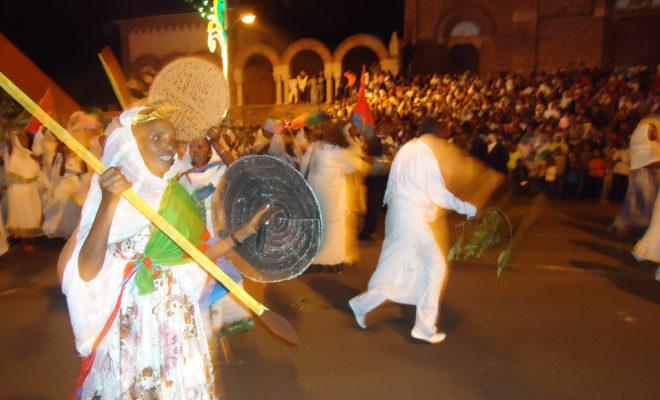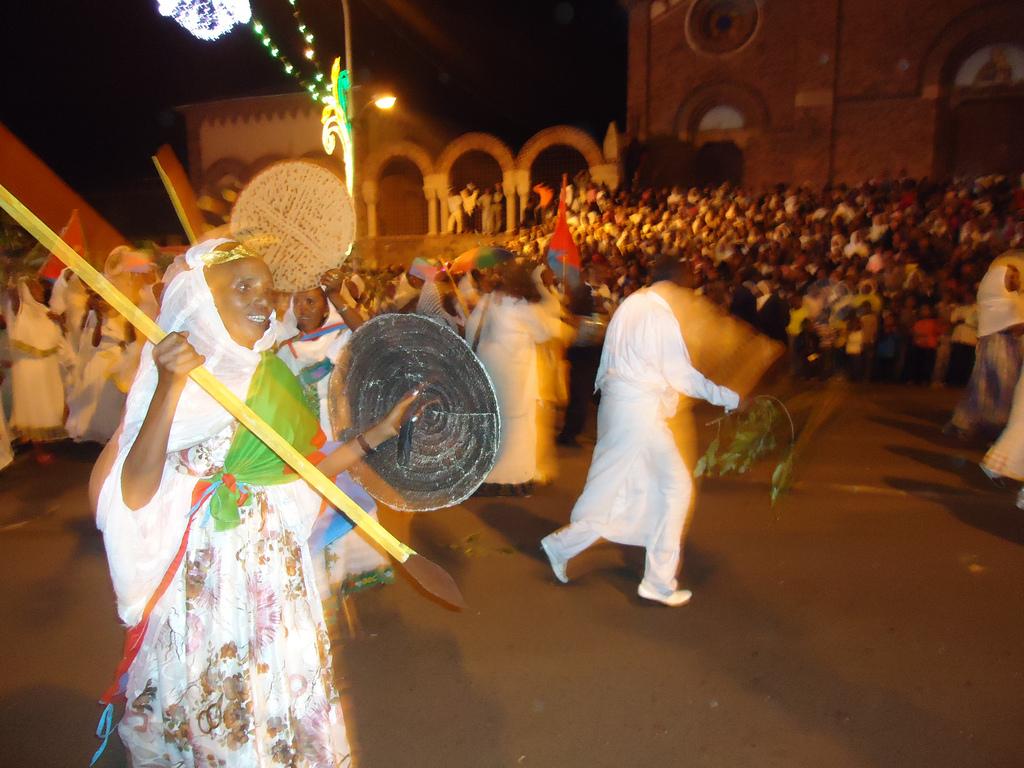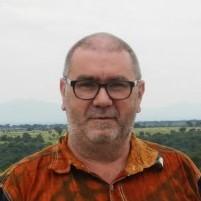Ethiopia and Eritrea: Turning the promise of peace into the real thing

Ethiopia has made the first move. The next should be for it to put all its detailed concerns on the table.

Eritrean celebrating the anniversary of the nation’s independence. Credit: The Come Up Show.
20 years since the start of a bloody war between Ethiopia and Eritrea, peace is long overdue. With the region facing unprecedented security threats, a resolution between the neighbours is also needed now more than ever.
That is why the announcement earlier this month by the executive committee of the EPRDF, Ethiopia’s ruling coalition, is so full of promise. Its vow to unconditionally implement the 2000 Algiers Agreement and withdraw from territory ruled to be part of Eritrea opens up possibilities that have long been frozen.
There is a long way to go yet, however. Promising peace is one thing; making it work practically is another.
To begin with, the seemingly straightforward matter of Ethiopia returning disputed land to Eritrea is anything but. There is a crucial difference between drawing a line on a map and demarcation on the ground. According to the Algiers Agreement, the UN Mission in Ethiopia and Eritrea (UNMEE) was supposed to support this process. But its withdrawal in 2008 due to Eritrean obstruction means the task falls to Ethiopia and Eritrea themselves.
This will not be easy. What happens if the line runs through a village or even a house? What if the two sides disagree on where a boundary stone should be located even by a few metres? And, most importantly, what happens to residents of the area?
Demonstrations in the town of Badme and elsewhere show people are frustrated they have not been consulted. There are also unanswered questions over land that is meant to be ceded to Ethiopia such as in Tsorona where inhabitants identify as Eritreans. For people in these areas, demarcating a border only makes sense if there are also agreements on issues such as private property ownership, free movement and the use of natural resources.
[Resolving the Ethiopia-Eritrea border: What actually needs to be done?]
Of course, the boundary isn’t the only outstanding issue in the Algiers Agreement. Both sides are required to pay reparations and have violated the cessation of hostilities. Eritrea, which was ruled to have triggered the conflict with its act of aggression in May 1998, cannot credibly claim to be scrupulously adhering to the Algiers Agreement while Ethiopia flaunts it.
There are also many important issues to discuss far beyond Algiers. This includes cooperation on critical matters of economics, infrastructure, and regional security. But frustratingly, these matters cannot be addressed until the comparatively small matter of the boundary is resolved.
From brothers to enemies
I first met Isaias Afwerki in 1990 during Eritrea’s long war of independence. He was in a cave near the front line at Afabet and welcomed me warmly as an Ethiopian. He said that we should deal with our hundred years of contested history by first allowing Eritrea to achieve self-determination. After that, he said, we can acknowledge our 3,000 years of shared history.
The second time we met was in Khartoum. That time, I raised the concern that an independent Eritrea could deprive Ethiopia of its access to the sea. Isaias was irritated at this notion and asserted that the port of Assab only makes sense if connected to Ethiopia. He said Eritrea would have no use for it otherwise and even suggested it could be leased to Ethiopia.
I also saw Isaias at the celebration of Eritrea’s independence in May 1993. At those events, Meles Zenawi, the Ethiopian rebel leader turned Prime Minister, spoke passionately about the tragedies caused by the war and of how Eritrean secession meant we could finally look forwards to a bright future for both people. Many Eritreans in the audience were moved to tears.
This was a high point. The Eritrean fight for independence had been an inspiration for Ethiopian progressives, introducing many of us to the principles of self-determination and popular struggle. Eritrean independence would have been far harder to achieve if the Ethiopian government hadn’t been so willing to recognise it as a sovereign state. The war for liberation in which Ethiopian and Eritrean rebels jointly defeated the repressive Derg regime had been fought for high ideals and the transformation of both countries. The aim was to create new relationships, not enforce borders.
And yet the line between the two countries became the trigger point for the conflict that erupted a few years later. It led to tragic losses, huge disruptions to people’s lives, and the estrangement of two brotherly peoples. The idea that it was necessary to fight to the death over a border is absurd; less than 30% of Africa’s boundaries have been demarcated at all. But the roots of the war always went much deeper, originating from unresolved issues at Eritrea’s separation.
[How Ethiopia and Eritrea can forge a new relationship]
The people must come together
President Isaias has not yet accepted Ethiopia’s offer to implement the Algiers Agreement, showing his arrogance and stubbornness. He may be taking a tough line because he thinks the new government in Addis Ababa is weak and he can gain further concessions. He may also be worried that if hostility with Ethiopia ends, his long-standing pretext for a state of emergency and full military mobilisation will be gone. He would then have to resume the process of adopting the constitution painstakingly drawn up in 1997, but which was never implemented. This would mean opening up the country to free speech, rule of law and elections.
In the 20 years since the war began, Ethiopia – once described by Isaias as an “overdressed Zaire” – has developed rapidly, enduring the difficulties that entails. By contrast, Eritrea has stagnated. Its universities have closed, its secondary schools send their graduates straight into the army, and the country has the largest outflow of refugees relative to its population in the world.
In this context, Ethiopia should take the lead in driving and defining the plan of peace. It has already made the first move. The next step is for to put its detailed concerns on the table: all the matters agreed in Algiers, plus an agenda for how to normalise political and economic relations, resuming those 3,000 years of common history. It should persist with a broader vision. This would put the ball in Isaias’ court.
Beyond the neighbouring governments, the international witnesses of the Algiers Agreement – namely the African Union, US and European Union – should contribute to this promising moment for change. But more importantly, it is essential that citizens are involved.
We cannot leave peace to our leaders alone. We must make it clear that the future of our two nations is at stake and that this is a matter not just for governments, but the people. Citizens should mobilise and build bridges with our brothers and sisters across the border longing to reconnect. It is the strength of the Ethiopians and Eritreans and our joint commitment to dialogue and understanding that will ultimately bring much-awaited peace.





